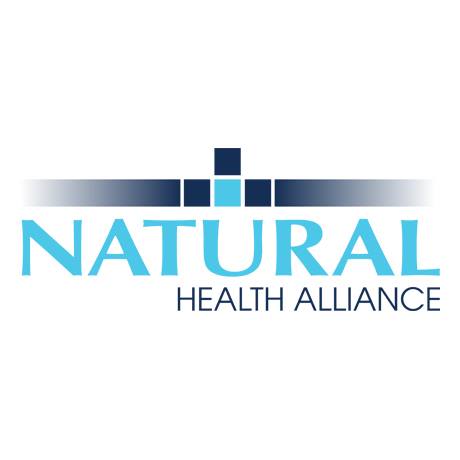Intelligence Report: Natural Health Alliance

Executive Summary
The Natural Health Alliance (NHA) is a New Zealand-based advocacy organization formed in 2003 to protect the natural health products industry from overly restrictive regulations. Led by Chairperson Paddy Fahy, the NHA represents a coalition of manufacturers, suppliers, retailers, and practitioners who seek to ensure that high-quality, safe, and affordable natural health products remain accessible to all New Zealanders. The alliance has been a vocal opponent of legislative measures such as the Natural Health Products Bill and the Therapeutic Products Bill, arguing that these impose disproportionate compliance costs and threaten small businesses and consumer choice. Through strategic political engagement, particularly with the NZ First party, the NHA has influenced policy outcomes, including the planned repeal of the Therapeutic Products Act in 2023. While effective, its political donations and lobbying efforts have sparked debates about transparency and the balance between industry interests and consumer safety.
Organizational Profile
Formation and History
The NHA was established in 2003 in response to the proposed Treaty for a joint trans-Tasman Therapeutic Products Agency (ANZTPA), which aimed to harmonize regulations between New Zealand and Australia. The alliance viewed this as a trade barrier that would increase costs and reduce the availability of natural health products. In 2007, the NHA, alongside other stakeholders, successfully opposed the Therapeutic Products and Medicines Bill through public protests and lobbying, leading to its withdrawal. In 2009, the NHA collaborated with industry and consumer groups to develop the Joint Industry Proposal (JIP), a co-regulatory model for natural health products presented to the Ministry of Health. However, subsequent legislative efforts, including the Natural Health Products Bill and the Therapeutic Products Bill, reverted to stricter frameworks modeled on Australian and Canadian systems, prompting continued opposition from the NHA.
Mission and Objectives
The NHA’s mission is to preserve natural, holistic, and traditional healthcare practices in New Zealand. Its key objectives include:
- Ensuring high-quality, safe, and affordable natural health products remain accessible.
- Advocating for a standalone regulatory authority for natural products, separate from pharmaceutical oversight.
- Restricting only ingredients with robust evidence of harm and setting maximum dosage levels based on similar criteria.
- Establishing a multi-tiered structure for health claims, with clear guidelines for terms like “clinically proven” or “supports.”
- Promoting affordable testing requirements for small manufacturers and importers.
- Educating allopathic medical practitioners about the benefits of nutritional supplements for non-critical conditions.
Leadership and Key Figures
The NHA is led by Paddy Fahy, also known as Patrick Fahy, who serves as chairperson. Fahy has over 20 years of experience in the natural health industry and is a naturopathic physician and nutritional biochemist. He founded Nutricom Australasia in 1998, a company focused on nutritional supplements and natural skincare, and may also be associated with Nature’s Sunshine Products as its managing director. Other notable figures include:
- Adam Ryan: Managing Director of Nutrisearch, a company providing practitioner-only supplements and technical support to over 1,500 healthcare practitioners in New Zealand and Australia. Ryan has been instrumental in Nutrisearch’s export deals and distribution agreements, such as with Douglas Laboratories.
- Daniel King: Founder of About Health Supplements, established in 2006 to address his mother’s health issues. The company has served over 76,000 customers and focuses on supplements for aging, joint, heart, and brain health.
These individuals have supported the NHA’s advocacy through financial contributions and industry expertise, strengthening its influence.
Membership and Structure
The NHA represents a broad coalition of natural health product manufacturers, suppliers, retailers, and practitioners. While specific membership details are not publicly disclosed, the alliance claims to be the pre-eminent organization for those directly involved in the industry. It is distinct from Natural Health Products NZ, an industry body founded in 2002 that represents over 80% of businesses in the sector, including major brands and manufacturers. There is no confirmed overlap in membership, but companies like Nutricom Australasia, Nutrisearch, and About Health Supplements may participate in both organizations due to shared interests.
| Aspect | Details |
|---|---|
| Membership Composition | Manufacturers, suppliers, retailers, and practitioners in the natural health industry. |
| Key Companies | Nutricom Australasia, Nutrisearch, About Health Supplements. |
| Distinction from NHP NZ | NHA focuses on advocacy and regulatory reform; NHP NZ emphasizes industry representation and export growth. |
Advocacy and Activities
Opposition to Regulatory Bills
The NHA has been a leading voice against the Natural Health Products Bill and the Therapeutic Products Bill, arguing that these impose excessive regulatory burdens. Key arguments include:
- Impact on Small Businesses: The bills favor large international manufacturers, with compliance costs (e.g., $170/year per product, $700 per new ingredient) threatening small and medium-sized enterprises. The NHA estimates that a small company with 200 products could face $40,000 in annual fees.
- Reduced Product Availability: The Canadian model, which the bills emulate, led to the loss of approximately 20,000 products from health stores since 2004. In New Zealand, 25% of Ayurvedic ingredients and 61 Māori herbs are not on permitted lists, risking their availability.
- Consumer Safety Concerns: The NHA argues that the bills’ restrictive “permitted ingredients list” removes safe ingredients, encourages unsafe homemade tinctures, and limits consumer access to preventive health products, potentially increasing chronic disease and healthcare costs.
- Lack of Transparency: Non-active ingredients may not be disclosed, and the bills do not require genetic testing of plant species, potentially allowing synthetic additives.
- Violation of Consumer Rights: The NHA claims that restricting access to natural nutrients violates the NZ Health & Disability Services Consumers’ Rights Regulations Act 1996.
The NHA’s advocacy led to the withdrawal of the Natural Health Products Bill in 2017 and has contributed to the planned repeal of the Therapeutic Products Act, passed in July 2023 but set for implementation in September 2026.
Political Engagement
The NHA has actively engaged in political lobbying, particularly with NZ First, to influence regulatory outcomes. Key activities include:
- Financial Support: Between 2017 and 2018, industry members donated $26,500 to the New Zealand First Foundation, including $6,500 from Adam Ryan, $12,500 from Daniel King, $2,500 from Paddy Fahy, and $5,000 from David Sloan of NZ Health Trust. These donations, which exceeded the $15,000 disclosure threshold, were not declared, raising transparency concerns.
- Advertising Campaigns: In 2023, the NHA and the S.B. Group ran full-page advertisements in the New Zealand Herald, costing approximately $10,000 each, urging voters to support NZ First, which committed to repealing the Therapeutic Products Act.
- Public Events: The NHA organized a public meeting in Wellington in May 2023, featuring NZ First leader Winston Peters, to rally opposition to the Therapeutic Products Bill.
These efforts culminated in NZ First’s inclusion of the Act’s repeal in its 2023 election commitments, a promise now part of the coalition government’s 100-day plan.
Public Engagement
The NHA maintains a presence on social media, notably through its Facebook page, which has 1,719 likes and focuses on updates about regulatory campaigns and industry news. The alliance has also organized public protests, such as the 2007 marches against the Therapeutic Products and Medicines Bill, demonstrating its ability to mobilize industry stakeholders and consumers.
Political Connections
The NHA’s relationship with NZ First has been a cornerstone of its advocacy strategy. NZ First has historically opposed restrictive regulations, claiming to have halted similar bills in 2007, 2017, and 2020. The party’s 2023 election success, with 6% of the vote, and its inclusion in the coalition government have amplified the NHA’s influence. The alliance’s chairperson, Paddy Fahy, has expressed optimism about potential regulatory shifts, such as moving natural health products under the Food Act and the Ministry for Primary Industries, away from the Ministry of Health’s oversight.
Controversies and Criticisms
The NHA’s political donations and lobbying have sparked debates about the ethics of industry influence in politics. The $26,500 in undeclared donations to the New Zealand First Foundation has drawn scrutiny, with critics questioning whether such financial support unduly influences policy decisions. Additionally, some may argue that the NHA’s push for lighter regulation prioritizes business interests over consumer safety, though the alliance counters that natural health products have an unblemished safety record, with no recorded hospitalizations or deaths in New Zealand, unlike pharmaceuticals or allergens like peanuts.
The government and proponents of the Therapeutic Products Bill, such as the Ministry of Health, argue that the legislation is necessary to align New Zealand with international best practices, ensure product safety and quality, and respond to evolving health technologies. The bill’s supporters, including Labour, the Greens, and Te Pāti Māori, emphasize the need for robust regulation to protect consumers, highlighting a divide with the NHA’s perspective.
Speculative Analysis
Looking ahead, the NHA is likely to focus on shaping new regulations following the repeal of the Therapeutic Products Act. Potential goals include:
- Standalone Regulatory Body: Advocating for a dedicated office for natural health products, free from pharmaceutical oversight, with a new ministerial position to lead it.
- Global Competitiveness: Promoting a regulatory framework that supports New Zealand’s natural health exports, potentially addressing the $500 million in lost export revenue noted by Natural Health Products NZ.
- Consumer Education: Expanding efforts to educate both consumers and medical practitioners about the benefits of natural health products, countering skepticism from allopathic medicine.
Potential Challenges:
- Transparency Scrutiny: The NHA may face increased calls for transparency regarding its political funding and lobbying activities, particularly if public or regulatory bodies demand stricter oversight of industry-political ties.
- Balancing Safety and Access: The alliance must navigate the tension between advocating for minimal regulation and addressing concerns about product safety and efficacy, especially for traditional remedies like rongoā.
- Industry Fragmentation: Differences with other industry bodies, such as Natural Health Products NZ, could complicate unified advocacy efforts, particularly if their priorities diverge on export versus domestic regulatory issues.
Future Impact: If the NHA succeeds in securing lighter regulations, the natural health industry could see increased product availability and reduced costs, benefiting consumers and small businesses. However, insufficient regulation could lead to quality control issues or unsubstantiated health claims, potentially undermining public trust. Conversely, if regulatory reforms align with international standards without excessive burdens, New Zealand’s natural health sector could strengthen its global reputation, leveraging the country’s pristine environment to produce high-quality ingredients.
Conclusion
The Natural Health Alliance is a pivotal player in New Zealand’s natural health products industry, effectively advocating for policies that protect small businesses and consumer access to holistic healthcare. Its strategic political alliances, particularly with NZ First, have yielded significant legislative influence, as evidenced by the planned repeal of the Therapeutic Products Act. However, its methods, including substantial political donations, have raised questions about transparency and influence. As the regulatory landscape evolves, the NHA’s ability to balance industry interests with consumer safety will be critical to its continued success and the broader health of New Zealand’s natural health sector.




Comments